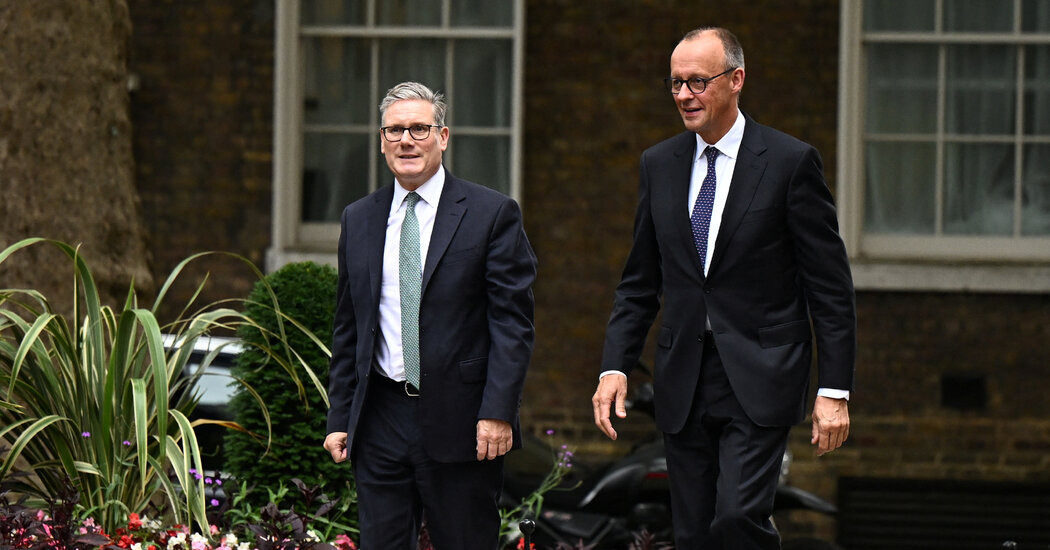
The new treaty includes a pledge by both countries to regard a threat against one as a threat against the other, in the latest sign of European nations uniting amid growing instability.
Britain and Germany signed a landmark defense treaty on Thursday, further evidence of how European leaders are drawing together to confront a security landscape scrambled by President Trump’s “America First” foreign policy and President Vladimir V. Putin’s relentless assault on Ukraine.
The Anglo-German accord, signed by Prime Minister Keir Starmer and Chancellor Friedrich Merz during his visit to London, covers energy, economic cooperation and migration, in addition to defense.
It builds on an agreement signed last October, under which the two agreed to cooperate on mutual defense, with joint military exercises and the development of sophisticated weapons.
The treaty includes a pledge by both countries to regard a threat against one as a threat against the other, declaring that they will “assist one another, including by military means, in case of an armed attack on the other.” That echoed language adopted by Britain and France, which pledged last week to more closely coordinate their nuclear arsenals in responding to threats against European allies.
Mr. Merz, a center-right leader who came to power in May, has swiftly emerged as a linchpin in Europe’s effort to build a more independent role in its security since the return of Mr. Trump to the White House. Mr. Starmer, who welcomed Mr. Merz to 10 Downing Street, has likewise tried to position Britain as a key player in European support for Ukraine in its war against Russia.
Germany does not possess nuclear weapons, but it is the third-largest supplier of military hardware to Ukraine, after the United States and Britain, according to the Kiel Institute for the World Economy. Under Mr. Merz, Germany has agreed to increase its military spending to 3.5 percent of gross domestic product by 2029, its most ambitious rearmament since the end of the Cold War.

